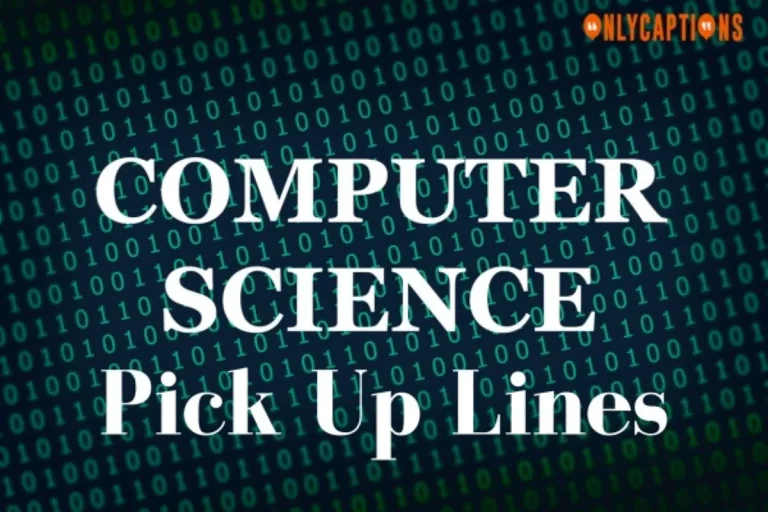Top Majors Similar To Computer Science
With its emphasis on problem-solving, programming, and working with technology, computer science provides a versatile skillset applicable across many fields. Students exploring related majors can build in-demand technical abilities while focusing on industries from business to arts to sciences.
In short: Majors like information systems, software engineering, and computational math overlap significantly with computer science, while fields like cognitive science, digital media, and computational biology apply coding to other domains.
This guide examines majors that complement computer science with skills in areas like data analytics, design, and human-computer interaction. Discover overlapping and interdisciplinary programs to align your degree with specialized interests and career goals.
Technology-Focused Majors
For students interested in pursuing a major similar to computer science, there are several technology-focused options available. These majors provide a strong foundation in computer science principles while also offering specialized knowledge in specific areas of technology.
Three popular majors in this field include Software Engineering, Computer Engineering, and Information Systems.
Software Engineering
Software Engineering is a major that focuses on the development and maintenance of software systems. Students in this major learn how to design, analyze, and implement software solutions to meet the needs of businesses and organizations.
They also gain expertise in programming languages, software testing, and project management. With the increasing demand for software developers in the job market, pursuing a degree in Software Engineering can lead to exciting career opportunities in various industries.
Computer Engineering
Computer Engineering is a major that combines elements of both computer science and electrical engineering. Students in this field study the design and development of computer systems, including both hardware and software components.
They learn how to design computer chips, develop embedded systems, and optimize computer performance. This major is ideal for individuals who are interested in the intersection of computer science and electrical engineering and want to work on cutting-edge technologies.
Information Systems
Information Systems is a major that focuses on the effective use of technology to support business operations and decision-making. Students in this field learn how to design, implement, and manage information systems in organizations.
They gain knowledge in areas such as database management, systems analysis, and project management. A degree in Information Systems can open up a wide range of career opportunities in fields such as data analysis, IT consulting, and technology management.
For more information on these majors, you can visit the following websites:
Math and Statistics-Based Majors
For students who have a passion for mathematics and statistics, there are several majors that offer a similar intellectual challenge and career opportunities as computer science. These majors provide a strong foundation in mathematical concepts and analytical thinking, making them excellent choices for those interested in problem-solving and data analysis.
Computational Mathematics
Computational mathematics is a major that combines the power of mathematical modeling and computer programming to solve complex problems. Students in this major learn how to develop algorithms, simulate mathematical models, and analyze data using computational techniques.
This field is at the forefront of scientific research, with applications ranging from physics and engineering to finance and healthcare.
Data Science
Data science is a rapidly growing field that focuses on extracting insights and knowledge from large sets of data. It combines elements of mathematics, statistics, and computer science to analyze and interpret data, and then use that information to make informed decisions.
Data scientists are in high demand across industries such as finance, healthcare, and technology, as they play a crucial role in driving evidence-based strategies and innovations.
Applied Math
Applied mathematics is a major that applies mathematical principles to real-world problems. This field involves developing mathematical models and using computational methods to solve practical issues in various industries such as engineering, economics, and environmental science.
Applied mathematicians work alongside experts in other fields to provide solutions that require a deep understanding of mathematical concepts and their practical applications.
According to a report by the Bureau of Labor Statistics, the demand for mathematicians and statisticians is projected to grow by 33% from 2019 to 2029, much faster than the average for all occupations.
This indicates the increasing importance of mathematical and statistical skills in today’s data-driven world.
If you have a strong aptitude for mathematics and an interest in problem-solving, pursuing a major in computational mathematics, data science, or applied math can open up a wide range of career opportunities.
These majors not only offer intellectual stimulation but also provide a solid foundation for a successful and fulfilling career in fields closely related to computer science.
Scientific Computing Majors
When it comes to majors similar to computer science, scientific computing offers a fascinating and rapidly growing field of study. Scientific computing combines computer science with various scientific disciplines to solve complex problems and make groundbreaking discoveries.
Here are three majors within the field of scientific computing that are worth exploring:
Bioinformatics
Bioinformatics is an interdisciplinary field that combines computer science, biology, and statistics to analyze and interpret biological data. It involves the development of algorithms and software tools to store, organize, and analyze large sets of biological data, such as DNA sequences and protein structures.
Bioinformatics plays a crucial role in genomics, personalized medicine, and drug discovery. By leveraging computational techniques, scientists can uncover hidden patterns in biological data, leading to new insights and advancements in the field of biology.
Cognitive Science
Cognitive science is the study of the mind and intelligence, combining elements from psychology, computer science, linguistics, philosophy, and neuroscience. As a cognitive science major, students explore how the brain processes information, how humans make decisions, and how to create intelligent systems.
By utilizing computational models and techniques, cognitive scientists aim to understand and replicate human cognitive abilities, such as perception, attention, memory, language processing, and problem-solving.
This field has applications in artificial intelligence, human-computer interaction, and user experience design.
Scientific Computing
Scientific computing is a multidisciplinary field that focuses on the development and application of mathematical models, algorithms, and software tools to solve scientific problems. It involves using computers to simulate and analyze complex phenomena in areas such as physics, chemistry, engineering, and environmental science.
Scientists and researchers in scientific computing utilize computational methods to model and simulate physical processes, analyze experimental data, and make predictions. This field is essential for advancing scientific research, optimizing industrial processes, and making evidence-based decisions in various domains.
By pursuing a major in scientific computing, students can gain a solid foundation in computer science while also exploring specific scientific disciplines. These majors provide exciting opportunities to work at the intersection of technology and science, making significant contributions to fields that shape our world.
Digital Arts and Media Majors
For students interested in computer science but with a creative flair, digital arts and media majors offer a great alternative. These majors combine technology with artistic skills, allowing students to explore the intersection of art and technology in various industries.
Here are three popular digital arts and media majors:
Digital Media
Digital media majors focus on the creation and production of digital content, including websites, videos, animations, and interactive media. Students learn how to use various software tools and programming languages to design and develop engaging digital experiences.
They also gain skills in storytelling, visual communication, and user experience design. Digital media majors can find career opportunities in advertising, marketing, entertainment, and web development.
Graphic Design
Graphic design majors specialize in visual communication and the creation of visually appealing designs. They learn how to use design software, typography, and color theory to create logos, advertisements, packaging, and other visual materials.
Graphic designers often work closely with clients or creative teams to bring their ideas to life. With the rise of digital media, graphic designers are in high demand in industries such as advertising, publishing, branding, and web design.
Computer Animation
Computer animation majors focus on the creation of animated content using computer software and techniques. They learn how to use 3D modeling, rigging, texturing, and animation software to bring characters and objects to life.
Computer animators work in industries such as film, video games, advertising, and virtual reality. Their skills are essential in creating visually stunning and immersive digital experiences.
While these majors are different from computer science, they share common elements such as technology, creativity, and problem-solving. Students with an interest in both computer science and the arts can find exciting career paths in these digital arts and media fields.
Business-Oriented Majors
While computer science is a popular major, there are several other majors that have a strong business focus and offer similar career opportunities. These majors combine technical skills with business knowledge, making graduates highly sought after in today’s job market.
Here are some business-oriented majors that are similar to computer science:
Information Systems
Information systems is a major that focuses on the use of technology to solve business problems. Students in this major learn how to design, implement, and manage information systems in organizations. They acquire skills in database management, programming, and project management.
Information systems graduates are equipped to work as systems analysts, IT consultants, or database administrators.
Business Analytics
Business analytics is a major that combines data analysis and business strategy. Students in this major learn how to collect, analyze, and interpret data to make informed business decisions. They develop skills in statistics, data mining, and predictive modeling.
Business analytics graduates are in high demand as companies increasingly rely on data-driven insights to drive their operations and strategies.
Management Information Systems
Management information systems (MIS) is a major that focuses on the use of technology to support business processes and decision-making. Students in this major learn how to design and manage information systems that help organizations achieve their goals.
They gain skills in data management, systems analysis, and project management. MIS graduates can pursue careers as IT managers, business analysts, or project managers.
These business-oriented majors offer a unique blend of technical and business skills that can open up a wide range of career opportunities. Whether you’re interested in developing software solutions, analyzing data, or managing IT projects, these majors provide a solid foundation for success in the business world.
Conclusion
While computer science provides a strong foundation in coding and working with technology, related majors allow students to specialize in fields from engineering to digital arts. By exploring overlapping and interdisciplinary programs, you can align your studies with professional interests in science, math, design, business, and more.
Combine the versatile thinking and problem-solving skills of computer science with domain expertise through a complementary major. The possibilities are wide open to apply computing to your passions and build a customized skillset for in-demand careers.







